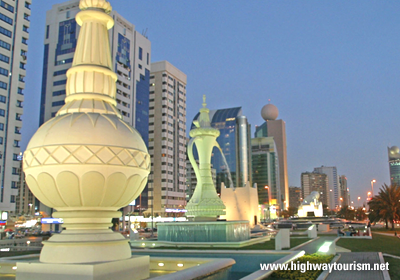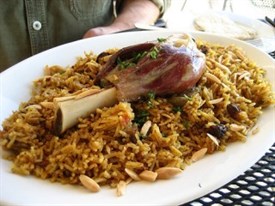Cultural Awareness Training: Preparing the Expat for Work in the UAE Part III
In part one and two of my cultural awareness training blog series, I covered the history and culture of Islam, the Arab world and the Middle East, how to establish your business in the UAE, business etiquette, cultural sensitivity and the Arabic language.
In the third and final part, I will focus on life in the UAE for expatriates, laws you should be aware of and traditional UAE food.
The UAE is an Arab country with Middle Eastern cultures and traditions. For expats, relocating to the country means many elements of everyday life change significantly. Certain attitudes and practices that are considered acceptable in most Western countries may not be in the UAE.
However, the UAE is generally considered a very tolerant country in relation to differences of culture and lifestyles.

How to Dress in the UAE
Emiratis dress in traditional clothing, Dishdash or Kandoora for men and Abayas for women. For expats, they can dress as they wish, within certain restrictions.
It is acceptable to walk around in sandals and shorts in Dubai or Abu Dhabi but, it is strictly forbidden to walk shirtless, even to go to the beach. Wait to undress until you arrive at the beach.
Women should avoid short outfits and plunging necklines. You could be denied entrance to shopping centers and restaurants, although this is rare.

Behavior & Attitudes
In public places, it is advisable to be aware of and adopt regional behaviors. Know that in all public places, it is forbidden to:
- Kiss on the mouth. However, kissing on the cheek or holding hands are allowed.
- Show excessive public displays of affection.
- Drink alcohol or be publically drunk (alcohol is allowed only at home or in hotels or bars).
- Be rude, or make rude gestures (the middle finger can land you a month in jail).
- Be topless (there can be very serious consequences for this offense).
During Ramadan, it is forbidden to:
- Drink in public places (even soft drinks).
- Eat in public places, even chewing gum.
- Smoke in public places.
Laws
It is imperative to know that non-Muslim expats must have a valid UAE Will in case of death. An Islamic code of legislation, Sharia law, is applied as the primary legal justification on matters involving family legal issues.
Therefore, in the event of your death without a Will, your assets will be distributed according to Sharia law. Sharia law is automatically applied to anyone who dies without a Will in the UAE, regardless of nationality or religion. This means that you and your family will have absolutely no control over how your assets will be distributed.

UAE Traditional Food
Some of the traditional dishes expats will find in the UAE include:
- Harees: made from meat and wheat, is a popular treat during special occasions such as Ramadan, Eid and weddings.
- Machboos: also called Al Makboos, has red meat as its main ingredient, which can be replaced by chicken or shrimp, and rice.
- Kabsa: made from a mixture of spices, rice (usually long-grain basmati), meat and vegetables.
- Luqaimat: fried pastry balls crunchy on the outside, soft and mushy on the inside covered with a date syrup which also includes flavors of saffron, cardamom and cinnamon.
Image Credit: Boswtol
Summary
It is important for anyone visiting or living in the UAE to know what daily life is like. If you are an expat moving there or if your company is planning on sending employees there to live and work, it is great to have a cultural awareness program in place to help with the transition. An understanding of appropriate clothing, local food and laws will help you be prepared for life in the UAE.
